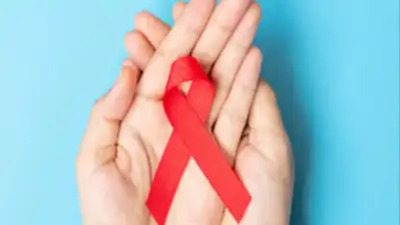VIJAYAWADA: To further strengthen its fight against the HIV-AIDS virus in the state, the Andhra Pradesh govt constituted an 18-member high-power council headed by the Chief Secretary. Chief Minister N Chandrababu Naidu approved Health Minister Y Satya Kumar Yadav’s proposal in this regard on Wednesday.
The 18-member council will consist of special chief secretaries, principal secretaries, and secretaries of various departments, including health, school education, higher education, women and child development, panchayat raj and rural development, municipal administration and urban development, youth affairs, tourism, agriculture, transport, roads, and buildings.
To ensure the participation of all stakeholders in the fight against AIDS, representatives of affected people like PLHIV and MARP, as well as representatives of Civil Society Organisations (CSOs) and Non-Governmental Organisations (NGOs), will be in the council. In addition, the AP State AIDS Control Society (APSACS) project director will act as the convenor of the council.
The new Andhra Pradesh State Council to oversee control of HIV/AIDS will enable policy decisions and effective implementation of AIDS control programmes through regular monitoring and assessment of the outcomes, resource mobilisation, and better implementation of programmes through inter-departmental coordination and encouraging community participation.
The council will convene on a regular basis to oversee the progress of the fight against AIDS. It aims at 100% enrolment of People Living with HIV (PLHIV), Most At Risk Population (MARP), and Children Affected By AIDS (CABA), ensuring proper disease preventive and post-disease treatment protocols, and their inclusion in various social protection schemes. The broad-based council is also required to provide proper leadership to the implementation of AIDS control measures in the state through regular review meetings.
Speaking on the occasion, Satya Kumar Yadav, who recommended the constitution of the new council, noted that it will significantly contribute to further strengthening the ongoing efforts to control HIV/AIDS in the state through inter-departmental effort and leveraging of available resources and infrastructure.








